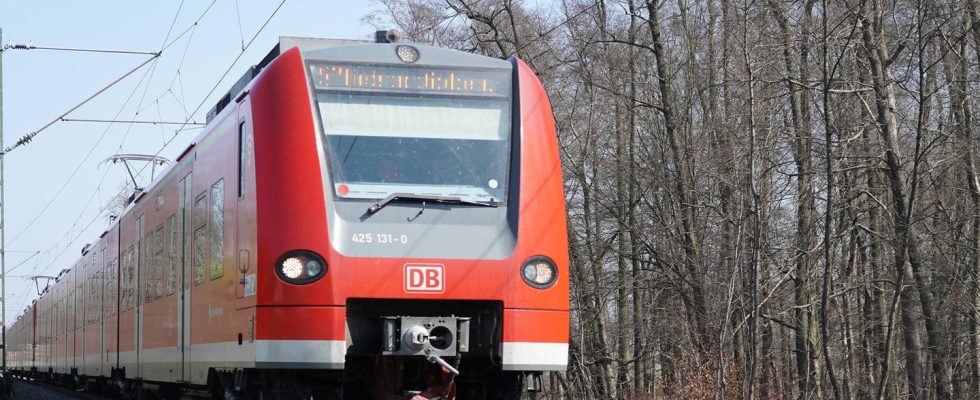General renovation
Railway commissioners and associations want more competition on the rails
Deutsche Bahn: An S-Bahn on the Riedbahn route. The busy section will be the first to be renovated.
© Marc Student / Imago Images
Longer journeys, replacement services – the general renovation will not be an easy time for rail passengers. But after that, those responsible promise that the trains will run more reliably. The railway’s competitors are not convinced.
According to the will of the federal government, Deutsche Bahn should… General renovation of the network means more competition in long-distance transport. This should also lead to cheaper tickets, as railway commissioner Michael Theurer (FDP) made clear in the “Rheinische Post” (Monday). With its ICE and Intercity trains, the state-owned company is almost a monopolist in long-distance transport with a market share of 95 percent; There is competition primarily from Flixtrain. From 2024 to 2030, the network’s most important corridors are to be completely renovated.
Deutsche Bahn should face more competition
Theurer said: “We want to create more competition in long-distance transport with a completely renovated network and sufficient capacity and thereby ensure cheaper tickets.” A look at other countries such as Italy or Spain shows “that competition leads to more quality and falling prices”. The FDP politician emphasized that during the renovation, those involved did everything they could to offer an attractive replacement rail service and thus keep the restrictions for travelers as limited as possible.
The general renovation affects 40 heavily used routes. They are to be completely closed for around five months and then completely renovated and upgraded. The federal government wants to make almost 40 billion euros available for this purpose.
Reliability should increase after the first work
Work will begin next year on the so-called Riedbahn between Frankfurt and Mannheim. It is one of the busiest routes in Europe. The railway therefore expects noticeable improvements in reliability after completion of the construction work there.
Unlike long-distance transport, the railway has numerous competitors in regional and freight transport. According to data from the Federal Network Agency, in regional transport they drive a third of the offer; in freight transport it is more than half.
Renewed criticism of the plans came from Deutsche Bahn’s competitors on Monday: “From our point of view, the general renovation is simply a reaction to neglected maintenance in the past,” said Ludolf Kerkeling, CEO of the competitor association Die Güterbahnen, on Monday. “Now we are faced with the shambles of our infrastructure and we are very critical of the success of the general renovation issue.”
A long-term concept is missing
For example, there is a lack of a long-term concept to ensure that the network remains in good condition over the long term and that the problems in ten or twenty years are not as serious as they are today.
The competitors are also critical of the concepts for the diversion routes during the complete closures that last several months. For example, on the Regensburg-Passau, Hanover-Hamburg and Munich-Rosenheim-Salzburg routes, it is not foreseeable where diversions for freight traffic could actually go, said Kerkeling.
Train ride
The most punctual rail countries in Europe – where is Deutsche Bahn?
Together with its sister association Mofair, the freight railways publish their competitor report on the competitive situation on the rail network every two years. They also criticize the dominance of Deutsche Bahn, especially in long-distance transport. However, the situation is quite different. There are a large number of collaborations that make a uniform picture difficult. “For example, the Mofair member RDC drives the German part of the night train between Berlin and Stockholm, which is marketed entirely by the Swedish state railway SJ.” The Nightjet connections of the Austrian Federal Railways (ÖBB) are operated by Deutsche Bahn.


